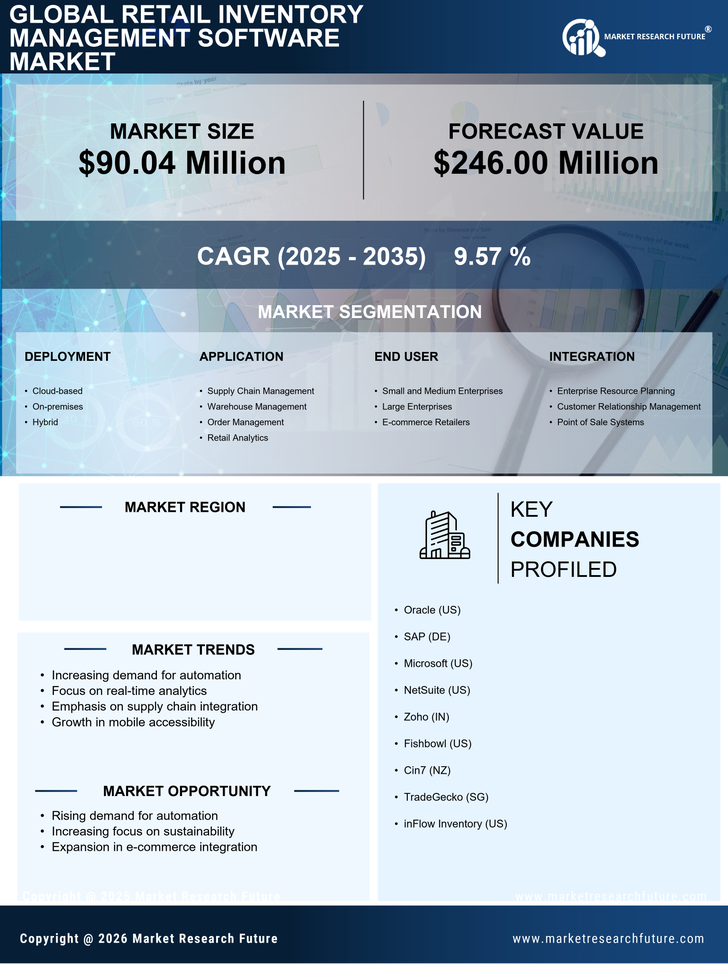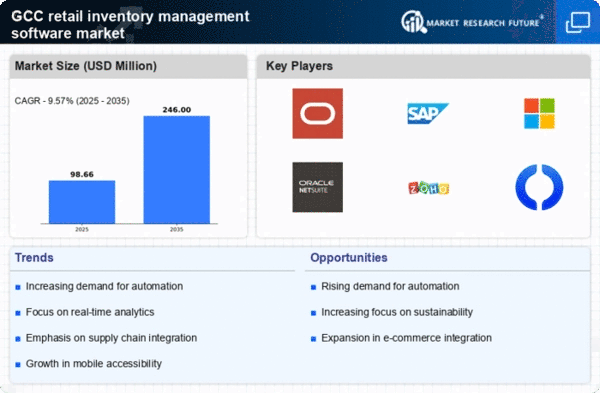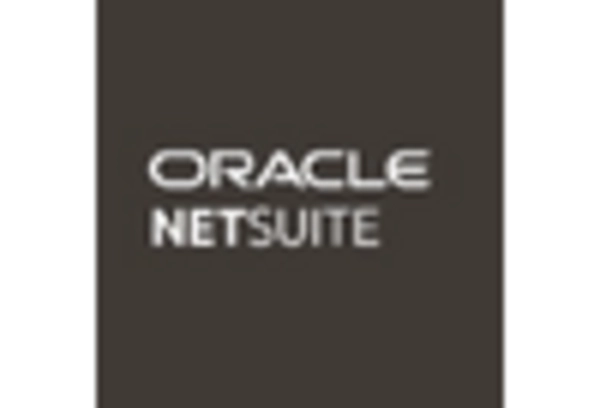Expansion of Omnichannel Retailing
The retail inventory-management-software market is significantly influenced by the expansion of omnichannel retailing strategies. Retailers in the GCC are increasingly adopting a seamless approach to integrate various sales channels, including physical stores, online platforms, and mobile applications. This shift necessitates sophisticated inventory management solutions that can synchronize stock across multiple channels. As a result, the demand for software that supports omnichannel capabilities is expected to rise. Recent data indicates that omnichannel retailers achieve 30% higher customer retention rates compared to single-channel retailers, underscoring the importance of effective inventory management in enhancing customer experience and loyalty.
Increased Focus on Supply Chain Resilience
The retail inventory-management-software market is witnessing a heightened focus on supply chain resilience. Retailers in the GCC are increasingly aware of the vulnerabilities in their supply chains and are seeking solutions that enhance flexibility and responsiveness. This trend is likely to drive the demand for inventory management software that offers features such as demand forecasting, automated replenishment, and supplier collaboration tools. Recent studies suggest that companies with resilient supply chains can reduce operational costs by up to 15%, making robust inventory management systems essential for maintaining competitiveness in a dynamic market environment.
Rising Demand for Real-Time Data Analytics
The retail inventory-management-software market is experiencing a notable surge in demand for real-time data analytics. Retailers are increasingly recognizing the importance of data-driven decision-making to enhance operational efficiency. This trend is particularly pronounced in the GCC region, where businesses are striving to optimize inventory levels and reduce costs. According to recent estimates, the market for data analytics in retail is projected to grow at a CAGR of 25% through 2027. This growth is likely to drive the adoption of advanced inventory management solutions that provide real-time insights into stock levels, sales trends, and customer preferences, thereby enabling retailers to respond swiftly to market changes.
Growing Emphasis on Cost Reduction Strategies
The retail inventory-management-software market is increasingly shaped by the growing emphasis on cost reduction strategies among retailers. In the competitive landscape of the GCC, businesses are under pressure to optimize their operations and minimize expenses. Effective inventory management is a critical component of these strategies, as it directly impacts carrying costs and cash flow. Recent surveys indicate that retailers implementing advanced inventory management solutions can achieve cost savings of up to 25%. This trend is likely to drive the adoption of software that offers features such as inventory optimization, demand forecasting, and automated reporting, ultimately enhancing profitability.
Technological Advancements in Inventory Tracking
The retail inventory-management-software market is being propelled by technological advancements in inventory tracking. Innovations such as RFID technology and IoT devices are enabling retailers in the GCC to achieve greater accuracy and efficiency in inventory management. These technologies facilitate real-time tracking of inventory levels, reducing the likelihood of stockouts and overstock situations. As a result, the adoption of advanced tracking solutions is expected to grow, with market analysts projecting a 20% increase in the use of RFID technology in retail by 2026. This shift is likely to enhance operational efficiency and improve customer satisfaction.

















